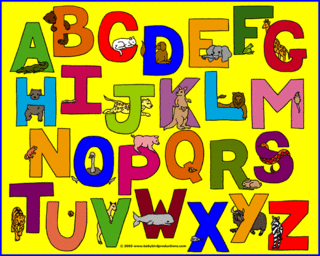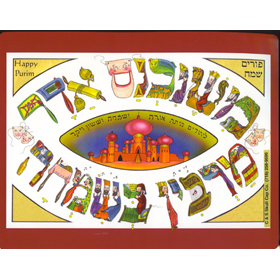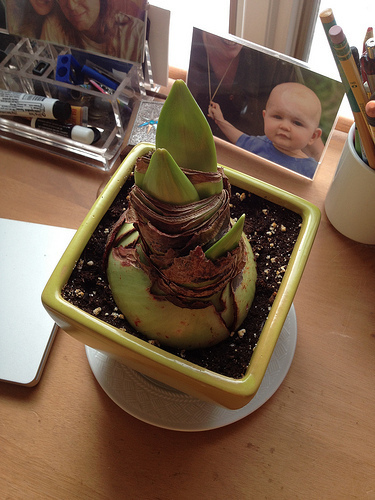Rachel Barenblat's Blog, page 199
February 18, 2013
Every body is a reflection of God
I glance down at my body in the shower, and the first thought that crosses my mind is: oh, there's that little belly that I don't like. And then I make the conscious effort to think a different thought: oh, there's that beautiful belly which grew our son. I can make the shift, but it requires a kind of mental wrenching, pulling my thoughts away from the well-worn groove to channel them in a different direction.
I know that my body is a miracle. (I remind myself of that every day when I say the asher yatzar blessing.) So why does my mind still immediately leap to criticism, instead of praise? To the things I don't like, instead of the things that I love?
It's a cliché to say that this is what mainstream American culture teaches women to do, but I think there's truth in it. We learn to belittle our bodies instead of praising them. To always be striving to be a few pounds thinner, a little bit more like the images we see in fashion magazines. (I know that men wrestle with this too. But I think women get more of these messages than men do.) I don't think that's an emotionally or spiritually healthy way to live.
In her powerful essay Hello, I Am Fat, Lindy West writes, "I have lived in this body my whole life. I have wanted to change this body my whole life." Is there anyone reading this who doesn't feel a twinge of I-can-relate-to-that? I don't want to co-opt Lindy's words or her passion; my body more-or-less fits the norms my society values. But even with this body, I still struggle with the ingrained impulse to belittle. And I'm not alone. Here's fashion blogger Sally McGraw:
I’m a normal woman, in every way. And yet I spend inordinate amounts of energy hating this perfectly normal body. My own and only body...
Dear Body, // I owe you an apology...
I often wish for "more" or "better." Wish my spare tire could vanish, arms could hold muscle tone, hips would slenderize, boobs would enlarge, skin would clear up. My wishlist is long, but it contains items that I feel are quite normal. However, when I wish, I wish for different things than what you can naturally provide for me, and my wishes are insulting to the abundance of goodness you offer me.
That's her post A Letter to My Body - Part 2. Is there anyone reading this who can't relate to the desire for a body which is "more" or "better" instead of the body one actually has?
I want better for us. Not better bodies, but better ways of loving the bodies we have, and better ways of staying mindful of how amazing it is that we have bodies to love. Being who I am, I turn to Jewish tradition for tools I can use in this holy work. The asher yatzar blessing is one. And since I didn't include a translation in my last post about it, I'll offer one here:
Blessed are You, Adonai our God
Who forms the human body with wisdom
And creates within it a miraculous combination
Of organs and arteries, tissues and sinews.
It is known before Your throne of glory
That if one of these were to be open where it should be closed
Or closed where it should be open
We would not be able to stand before you and offer praises.
Blessed are You, Adonai, creator of embodied miracles!
(And if you want a beautiful calligraphic rendering of this prayer in Hebrew, soferet Jen Taylor Friedman offers one as a thank-you gift for those who make a small donation to Pardes.) In the birchot ha-shachar, the traditional morning blessings which are part of our daily liturgy, we bless God Who opens our eyes, makes firm our steps, strengthens the weary, crowns us with splendor. These bodies in which we live offer us endless opportunity for offering blessings.
And Jewish tradition holds that we are all made b'tzelem Elohim, in the divine image. Each of us is a reflection of divinity. What does God look like? Like me. And you. And you. And you. Every single human being who has ever lived and who will ever live is a facet of the divine reflection. Think about that for a moment, and marvel with me.
Every skin color. Every shape and body type. Every expression of gender. Everybody -- and I mean that in its most literal sense, every body -- is a reflection of God. What would it be like if each of us could unlearn the habit of disliking our bodies, and replace it with the mantra this body is a reflection of God, exactly as I am?
February 17, 2013
In praise of Sundays
The thing I missed most about American life, the summer I was living in Jerusalem, was Sundays. (The thing I missed second-most was American-style coffee, which is to say, coffee made in a drip coffeepot. I never came to be a fan of Nescafé -- though I'm entertained by Shoshana Kordova's deconstruction of the brand-name into the Hebrew for "miracle coffee.")
The Israeli weekend is Friday and Saturday, which makes preparing for Shabbat much easier -- you have all day on Friday to do your shopping or cooking, get the house ready, and be in a position to be wholly relaxed and celebratory by the time the sun goes down on Friday night. It's an awesome luxury on a spiritual level. And it's also a practical necessity, since if you're in West Jerusalem -- which is where I was -- pretty much everything is closed on Saturdays, in deference to Shabbat. But by the time Shabbat is over, on Saturday night, there isn't much time for anything -- and first thing on Sunday morning, the work-week starts again.
I was only there for a summer. It wasn't long enough to adjust to this uniquely Israeli rhythm. I loved being in a place where Shabbat was built into the fabric of weekly life, and I loved the luxury of getting Fridays off to prepare for Shabbat -- but I always felt strangely cheated on Saturday night when it came time to go to bed early, and on Sunday mornings it was always a struggle to drag myself out of bed to go to school. Something in me yearned for the lazy experience of a morning I could use to do whatever I wanted. I could sleep in and laze around on Saturdays, if I wanted to -- but there were so many different synagogues and minyanim in Jerusalem where I wanted to daven, so Shabbat mornings usually meant waking up early and setting forth with my map and a pair of good walking sandals to find a new community with which to pray.
That whole summer when I was living abroad, I really missed lazy Sundays of reading the New York Times and drinking giant bowls of coffee with milk. And I missed the luxury of having a day to do whatever I pleased after the experience of Shabbat. There's something different about having the day of relaxation after Shabbat, rather than before -- since on Fridays, knowing that Shabbat was coming, I tended to be running around like crazy to arrange for everything before the stores closed.
Sundays have changed since we had a kid. Gone are the days of sleeping until 10 or 11am and then settling in to the couch with the Sunday Times until early afternoon! These days if we get to sleep until 7, that's a rare gift. And the mornings are likelier to include Kai-Lan cartoons and playing with the marble run toy than reading the Times. (The giant cups of American-style brewed coffee are, fortunately, still available.) But I'm still grateful for the simple pleasure of this weekly day of downtime -- a kind of downtime that's different from Shabbat, but still sweet.
I sat down to write a little bit this morning, and this was the natural subject which came to me -- though once I'd drafted the post, I suspected I might have written about it before. Sure enough, I had: Thank God for Sundays, 2008.
D'var Torah for Terumah: God Dwelling In Us
Here's the d'var Torah for last week's Torah portion, Terumah, which I offered yesterday at my shul. (Cross-posted to my From the Rabbi blog.)
This week's Torah portion contains one of my favorite verses in Torah: וְעָשׂוּ לִי מִקְדָּשׁ וְשָׁכַנְתִּי בְּתוֹכָם / "Let them make Me a sanctuary, that I may dwell within them."
We're diving deep this week into the description of the materials used to build the mishkan, the portable tabernacle the Israelites built in order to carry the tablets from Sinai with them in the wilderness. Some interpretations hold that the mishkan is built on a mystical blueprint which matches the blueprint of creation itself. Others see the mishkan as a temporary, portable "first draft" for the eventual Temple in Jerusalem.
The mishkan is a big deal. We'll spend weeks reading about its construction. But the Torah offers up what is arguably the most important detail at the very beginning of all of the descriptions: the reason why the Israelites are building this sanctuary in the first place.
The word "mishkan" comes from the same root as the word Shekhinah, the divine Presence which dwells in creation. You might imagine, therefore, that God would dwell within the elaborate structures of gold and acacia wood, tanned skins, and woven tapestries of blue and crimson and purple which the Torah describes. Or that God would eventually dwell within the Temple, when we reach the point in our history when that structure is built, all shining white limestone atop one of Jerusalem's hills.
But God dwells everywhere. As our liturgy reminds us, מלוא כל הארץ כבודו / the whole earth is full of divine glory! The reason the Israelites built the mishkan was so that God would dwell within them.
Like our ancestors, we too build religious structures in our lives. Some are literal, like this beautiful building of cement and copper and wood and glass. Some are metaphorical, the structures of practice and ritual and prayer. But the purpose of all of them is to invite God to dwell within us.
You've heard me say something like this before, in introducing the ashrei.
Rabbi Phyllis Berman taught me to understand that prayer's first line
-- "happy are they who dwell in Your house, they will praise You
forever" -- as an invitation for us to be joyous dwelling in our own
bodies. This body, this heart, is God's house.
When we create beautiful places with the intention of opening ourselves to holiness, God takes root in our hearts. When we engage in beautiful practices with the intention of opening ourselves to holiness, God enlivens us. We are the mishkan, the tabernacle, the temple, where we seek for God to dwell.
Why do we need to build the structures -- the buildings, the practices? Why can't we just invite God in? Well, we can; but that doesn't always work. Just saying, "hey, God, I want to open myself up to you" -- what does that really do? For most of us, it isn't enough. A better way to cultivate holiness in our lives is to enter into the practices, to take on the work, of building something together.
We don't have a mishkan to build anymore, but we can enter into the work of building our synagogue community. Show up to make a minyan; mix meatloaf for Take and Eat; plant a synagogue garden in the spring; join the Hesed committee and visit our members who are homebound or sick. We build our community in a million little ways, and when we do, we invite God to dwell within us.
February 14, 2013
Bedtime prayers and the alphabet
 My mother taught me to say my prayers before I went to sleep. She would sit by my bedside, and every night, I would recite "God bless Mom and Dad, Lali and Eppie" -- my grandparents, of blessed memory, who were then living -- and then go on to mention all of my siblings (and, in time, their spouses), and Eloisa (one of my childhood caregivers), and "my aunts, and uncles, and cousins, and friends, and everybody else, amen." And then I would say, or sing, the one-line shema.
My mother taught me to say my prayers before I went to sleep. She would sit by my bedside, and every night, I would recite "God bless Mom and Dad, Lali and Eppie" -- my grandparents, of blessed memory, who were then living -- and then go on to mention all of my siblings (and, in time, their spouses), and Eloisa (one of my childhood caregivers), and "my aunts, and uncles, and cousins, and friends, and everybody else, amen." And then I would say, or sing, the one-line shema.
I didn't know then that what I was doing had a formal name and was part of daily Jewish practice. Saying my prayers before bed and ending with the shema was a shortened version of kriat shema al ha-mitah, the traditional liturgy of the bedtime (or "in bed") recitation of the shema. That's something I've come to know in adulthood, as my study of Judaism has deepened. All I knew, when I was a kid, was that this was what I did every night, with my mother sitting by my bedside.
(I've posted about my favorite prayer from the bedtime shema liturgy before. If you want a beautiful downloadable rendering of that whole set of prayers, with transliteration and meaningful English, you can find one at the end of Rabbi Daniel Siegel's post The Cycles of T'shuvah.)
Saying my prayers before going to sleep was such an ingrained childhood tradition that I've never stopped doing it. Even on my tiredest nights, when I climb into bed, I silently thank God for people in my life, for the blessings of home and bed and enough to eat, and I say the shema. The tradition is more or less unchanged since my mother gave it to me -- though some of the people I used to bless have died, and others (most notably our son) have joined my list.
So it's probably not surprising that as Drew has grown, I've shared this practice with him, as my mother shared it with me. Before he goes to sleep -- as we're sitting in the gliding rocker where we used to nurse, after we've read a book together and turned on the white-noise machine and turned off the lights -- we ask God to bless his parents, and grandparents, and aunts and uncles and cousins and friends, and everybody else, amen. And then when he's in bed and I'm sitting by his bedside, smoothing the Thomas the Tank Engine fleece blanket over him and nestling all of his stuffed animals by his side, we say the shema. And then I tell him I love him, kiss him goodnight, wish him sweet dreams, and quietly tiptoe out of the room.
 Well: that's how it goes some nights. Exactly like that, sweet and serene. But other nights, nothing goes as planned. He giggles his way through putting on pyjamas (often running around the room half-dressed, or pretending he thinks the bottom part of the PJs goes on his head), resists brushing teeth with remarkable stubornness, and when I invite the saying of prayers or singing of the shema, he shouts "no!" On those nights, what he usually wants to do is sing the alphabet song, instead. He sings it to me, then I sing it to him in lieu of a lullaby. (I miss the lullabies I used to sing to him when he was a baby, but I try to respect his desires.)
Well: that's how it goes some nights. Exactly like that, sweet and serene. But other nights, nothing goes as planned. He giggles his way through putting on pyjamas (often running around the room half-dressed, or pretending he thinks the bottom part of the PJs goes on his head), resists brushing teeth with remarkable stubornness, and when I invite the saying of prayers or singing of the shema, he shouts "no!" On those nights, what he usually wants to do is sing the alphabet song, instead. He sings it to me, then I sing it to him in lieu of a lullaby. (I miss the lullabies I used to sing to him when he was a baby, but I try to respect his desires.)
Anyway, last night was one of the nights when he happily joined me in listing the people we wanted to bless, but didn't want to sing the shema. Instead he sang the alphabet song. And asked me to sing the alphabet song. And then sang the alphabet song to me again. And as I sat on his bed listening to his voice, I remembered the Hasidic story about the little boy who came to synagogue but didn't know any of the prayers. So as the congregation was immersed in prayer, he recited the alef-bet -- the only Hebrew he knew -- in hopes that God would assemble the letters into prayers on high. And it was his sweet, simple recitation which lifted up the prayers of the whole congregation.
(There's a one-paragraph version of that story in a post from Rabbi Phyllis Sommers: Alef Bet. Another version appears in the boy who prayed with the alef bet.)
I love the idea that even when he doesn't want to join me in a formal prayer before bed, God can translate his alphabet singing into the most meaningful prayers of his heart.
February 13, 2013
A daily love song for the body

One of my wintertime rituals is rubbing lotion into my hands and forearms. I keep a little tube of lotion on each of my two desks, the one at home and the one at the synagogue. I don't know whether the dryness stems from living with radiators and fires during the wintertime, or from some natural lack of moisture in the local winter air, but one way or another, my skin is always dry in wintertime. Hand lotion feels like an incredible gift. I can actually see my thirsty skin coming back to life, like a wilted plant becoming vibrant again.
While I'm rubbing the lotion into my palms and the backs of my hands, I say the asher yatzar blessing, praising God Who creates the human body with wisdom. After I had my strokes, I developed a new relationship with the idea that if one of the body's many openings should be accidentally closed, it's no longer possible to stand before God and offer praise.
My relationship with the blessing changed again when I became pregnant and started giving myself daily injections of blood thinner; I recited the blessing every morning as the needle's plunger found its way home. And then I treated my expanding belly to some lotion, both to soothe the sting of the injection and because I couldn't help marveling as my physical form started to shift and change.
Today the blessing has become mundane again. I'm no longer worried about blood clots sneaking their way into my brain; I take my handful of pills every morning, and I trust that they're all doing their jobs and that my blood will continue to flow freely where it ought to be flowing. And I no longer have to steel myself to pinch a generous fold of flesh and guide a needle home. But the habit of reciting the blessing remains, a reminder that my body is a miracle -- that every body is a miracle, always.
Several years ago I learned how to sing the sheva brachot, the seven blessings which are central to every Jewish wedding ceremony. I learned to sing them from my teacher Hazzan Jack Kessler, who chants them according to the trope (the system of cantillation) used for the Song of Songs. It's a perfect match. I love singing the blessings which sanctify the heart of a wedding using this ancient ancestral melody which is linked with our tradition's greatest text about companionship and love.
One of those blessings begins ברוך אתה ה' אלהינו מלך העולם, אשר יצר את האדם בצלמו -- Blessed are You, Adonai, Sovereign of creation, Who creates humanity in Your image. The asher yatzar blessing begins with those same words, though instead of "in your image," the daily prayer says "with wisdom," and continues on from there. But because I have so frequently sung those opening words to this Shir haShirim melody, that's the melody I naturally hear in my head when I think of the words of the asher yatzar blessing.
And it reminds me to relate to my own body with love. To marvel at the wonder of having a body that works, and to treat my physical form with the love, kindness, and compassion I seek to bring to my marriage and to all of my relationships. Every time I grace my body with lotion, every time I recite the asher yatzar, is a chance to sing a love song to my body. Imperfect though it surely is, this body carries me through the day -- enables me to walk, to touch, to eat, to sleep, to sing -- grew our son from component cells. Yes, this body is worth celebrating. Always.
February 11, 2013
Happy Adar - the gateway to the gateway to spring!
 "When Adar enters, joy increases!" So says the wisdom of our tradition (B. Ta'anit 29a.) Why? The simplest answer is that the month of Adar contains the festival of Purim, and Purim is a festival of rejoicing.
"When Adar enters, joy increases!" So says the wisdom of our tradition (B. Ta'anit 29a.) Why? The simplest answer is that the month of Adar contains the festival of Purim, and Purim is a festival of rejoicing.
Although Purim can seem, on the surface, like a purely fun-oriented holiday -- costumes, merriment, silliness, noisemakers -- there's more there than meets the eye. That's kind of Purim's theme, really. In the megillah of Esther, things aren't necessarily as they first appear. The king isn't really in charge; Esther isn't just a beautiful woman; and though God is never mentioned, divine providence is palpably present, subtly guiding events to turn out for the best.
One month later, at the next full moon (in years like this one, not a leap year) comes Pesach, the festival of our liberation. In Jewish spiritual time, Pesach is the entryway into spring. As I type these words here in western Massachusetts in early February, snow is falling fast and furious. Spring's usual signifiers feel a million years away.
But Pesach is about something deeper. Pesach is when we tell the central story of our peoplehood: that we were slaves to a Pharaoh in the Narrow Place, the place of suffering and constriction, and our God brought us out from there with a mighty hand and an outstretched arm. Pesach is about leaving Mitzrayim together, crossing the Sea of Reeds and emerging into an unknowable and incredible openness and possibility on the other side. At Pesach we're like bulbs putting out the first shoots of new life, not knowing what we'll find once we break through the surface of the earth but trusting that if we keep pushing, we'll find the light.
Right now, at the new moon of the month of Adar, that breaking-forth into the light is six weeks away. And the first big step on our journey toward Passover and its liberation is Purim -- two weeks from now, at full moon -- when we'll tell the story of how Esther and Mordechai took the lead in liberating the Jewish people of Persia from persecution.
At Purim, we have the opportunity to liberate ourselves from our usual ways of thinking: we lighten up, sing silly songs, wear costumes which may reveal a different facet of who we imagine ourselves to be, and strive to ascend beyond our usual ways of thinking to see the world from a lofty, enlightened God's-eye view. (That's my favorite Hasidic interpretation of the injunction to drink ad d'lo yada, until one can't tell the difference between Haman and Mordechai.)
And one month after that, we'll gather to retell the story which constitutes us as a people: that we were slaves and now we are free. That life was constricted and now it opens up. That more light, and more life, and more responsibilities, and more wonders, are in store.
The new moon of Adar is the first step toward spring, an opportunity to open ourselves to joy and liberation. No wonder our sages say
מי שנכנס אדר מרבין בשמחה / Mi she-nichnas Adar, marbin b'simcha / When Adar enters, joy increases. May it be so!
More Adar wisdom:
The Months of Spring: Purim through Pesach by Rabbi Marcia Prager. "If we understand the spiritual journey that begins in Nisan, we'll have some of the tools we need to understand Purim and the gifts and challenges this seemingly minor holiday brings."
Joy Increases by Rabbi Jeff Goldwasser. "For those who are feeling beaten and battered by the darkness of winter and by the storms of life and sky, this is a time to focus on brightening our souls. Seek, pursue and create excuses for your own happiness. Be outdoors, sing, play, take pleasure, and delight in all growing things."
February 8, 2013
Dear you, who are feeling sad and afraid --
You know those days when the light seems all wrong, when your skin feels too tight, when anxiety or sorrow clutch at your heels? A sense of heaviness, as though your heart were made of lead. Tears banging at the back of the throat.
Oh, those days are so hard. It's almost funny, how completely your perspective can switch. Suddenly things which seemed manageable, even laughable, when you were feeling okay become more than you can possibly bear.
I could publish this post today, or next week, or a year from now, and someone reading it will be nodding along, thinking: she's talking about me. That's where I am. That's how I am. I don't know whether it will ever get better.
A wise friend told me, earlier this week, that her grandmother used to say that the painful things will always pass. I like that way of seeing the world. Yes: the hurt will pass, and things will get better. Though sometimes it's hard to trust that that's true.
Here's what I want to say, if you're feeling scared, or trapped, or overwhelmed. If, in Mary Oliver's words, "your spirit / carries within it // the thorn / that is heavier than lead -- / if it's all you can do / to keep on trudging --"
I am thinking of you. I'm holding you in my heart and in my prayers. Keep breathing. Be kind to yourself, in whatever ways you can. Indulge your body with a hot bath or a pot of good tea. Indulge your heart; let it feel whatever it needs to feel.
You're going to be okay. You won't always feel this way. We're all adrift on this vast ocean, and when the storms of depression kick up, the waves feel dangerous and endless -- but they will end. The waters will become smooth as glass again.
And when they do, you'll see all the rest of us in our little boats, waving. We'll paddle alongside each other, and lash our crafts together, and share meals and music, and travel together toward our collective destination. You are not alone.
February 7, 2013
Sestina for a three-year-old
You can turn anything into a car.
Drive your bread across the bright
expanse of table, look to see
whether I'm watching, if I'll say no.
Tell me you can do it, you are big
enough, you know you are three.
On tough days I count to three
then lift you bodily into the car.
Cue wailing. "No, mommy, I'm too big,
don't do that to me!" The sun's too bright,
the music's wrong, a world of no.
Two minutes later you're chatting: "see
the fields sleeping, mommy? I see
some horses, one-two-three!"
You emerge from your funk as though no
upset ever happened, pick up a car
and zoom the length of your lap. The bright
side: you never hold a grudge, big
arms outspread, your heart as big
as the moon you greet each time you see
her in the heavens shining bright.
"Hello moon! Look, I see three
stars!" and we pause outside the car
beneath the darkening sky. There's no
rulebook on snow days, no
limits to what we can watch on the big
tv, Pocoyo in his musical red car
trundling across the white expanse to see
what he can see. Now we are three:
new family constellation bright
in the sky's expanse, bright
as your laugh when I tickle you. "No,
do it again, again! Count to three
with your hand up here." The next big
leap just over the horizon, where we can't see.
Long legs kick the passenger seat in my car.
Bright stripes and new songs: you are big
enough to say "no, I can do it, see?"
Utterly three! Come on, get in the car.
I wanted to write a poem for this week's imperfect prose
prompt -- "belief" -- but I couldn't get it to work. So I tried a
sestina, because sometimes the strictures of the sestina form jar my
creativity into working in new ways. That was better, but still not
great. I think I chose the wrong end-words; no matter what I tried, the
sestina still felt sentimental and trite. So then I tried writing an
entirely different sestina, on an entirely different subject, and that
one, I liked. So that's the one I'm sharing today, even though it has
nothing to do with the prompt that originally got me writing.
(Speaking of writing and prompts: if you're following any literary
blogs which offer regular prompts, will you link me to them? I miss Big
Tent Poetry and Read Write Poem.) Anyway: hope you enjoyed the poem. All feedback welcome.
February 6, 2013
February, redux
I believe with a perfect faith in the coming of spring. Even though it tarries, nevertheless do I believe it will come!
The caption of the amaryllis photo is adapted, lovingly, from the 12th of Maimonides' 13 principles of faith.
(Related: February.)
Another mother poem in print
I'm delighted to be able to announce that another one of my mother poems, "The Permeable World," has been accepted for publication -- it will appear in The Heart of All That Is: Reflections on Home, which will be published by Holy Cow! Press in October, 2013.
Holy Cow! Press has been around for a while -- they started publishing in 1977, and I respect their work tremendously. This is the press which published Beloved on the Earth (which I reviewed here last year), and I'm delighted that they'll be publishing one of my poems this year too.
Once the anthology is available for pre-order, I'll post here again to let y'all know how you can buy a copy. Thanks, Holy Cow! editors.
Rachel Barenblat's Blog
- Rachel Barenblat's profile
- 6 followers





